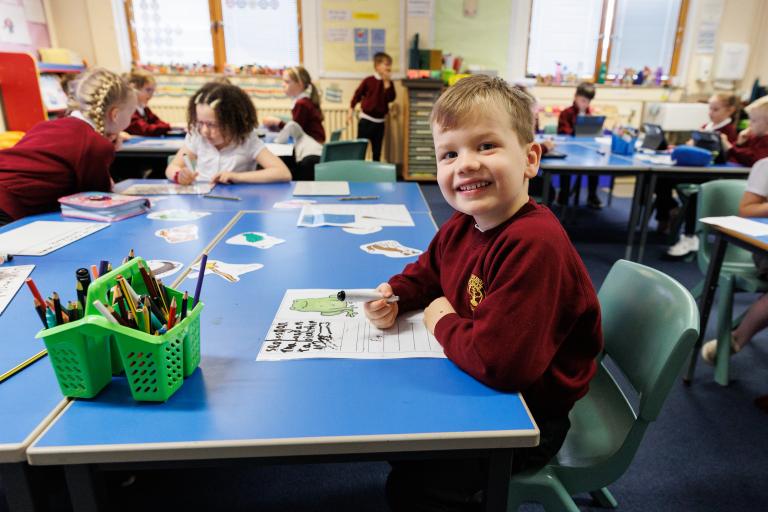
Draft role numbers for the 2025/26 academic session show that 49% of primary age pupils across the Western Isles are enrolled in GME, with an impressive 57% of this year’s Primary 1 intake choosing Gaelic as the language of learning.
The increase in enrolment is testament to the commitment of families and the wider community in supporting bilingualism and securing the future of Gaelic for the next generation.
At a recent meeting of Gaelic development agencies, the Comhairle’s initiative to strengthen the use of Gaelic in homes and communities was warmly welcomed and endorsed by all those in attendance. There was a shared understanding that the future of the language relies not only on formal education but on creating environments where Gaelic is heard and spoken naturally every day.

While schools play a vital role in language learning, the everyday use of Gaelic in the home and community is just as important. To truly thrive, young people need to hear and use Gaelic beyond the classroom. That’s why the Comhairle is encouraging everyone parents, grandparents, neighbours, shopkeepers, bus drivers, football coaches, and friends to use Gaelic in daily interactions with children and young people. Whether it’s a greeting in the morning, a short chat at the shop, or stories shared at bedtime, every Gaelic word contributes to a richer, more confident linguistic environment.
Anne Graham, Quality Improvement Officer at Comhairle nan Eilean Siar and parent of two children in Gaelic Medium Education, added:
“This is a hugely positive moment for Gaelic in the Western Isles. The strength of GME lies not just in our schools, but in our communities. We are calling on everyone to take pride in the language and to use it with the young people in their lives. Gaelic belongs to us all and its future depends on all of us using it.
Teàrlach Wilson from An Taigh Cèilidh in Stornoway said:
“We work to create welcoming spaces where Gaelic can be lived and enjoyed naturally. Whether through events, drop-ins, or intergenerational conversations, we see the difference it makes when young people experience Gaelic as part of everyday life. Partnership working with the Comhairle and other organisations is vital together, we can build a strong, connected Gaelic community that supports and celebrates the language at every level.”